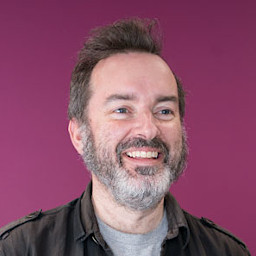Professor Paul Whitty
Head of School of Arts
School of Arts

Role
Paul is Head of School, Professor of Music and leader of the Sonic Art Research Unit.
Teaching and supervision
Modules taught
Paul teaches composition and sound arts on the BA (hons) Music and MA Music.
Supervision
Paul supervises PhD students in experimental compositional processes, sound arts and field recording. PhD theses supervised recently include:
- Malcolm Atkins The development of compositional method within the context of the Anglo-American experimental music tradition
- Patrick Farmer Listening, a correspondence
- Felicity Ford The Domestic Soundscape
- Daniel Goren Applications of Natural Physical Phenomena as Models in Compositional Practice
- Elizabeth Heighway Sounding Severn
- Shirley Pegna Sound Transit
- Austin Sherlaw-Johnson What use is music in an ocean of sound
- Sam Thomas The Bass Guitar in Contemporary Composition
Research
Paul Whitty is a composer and sound researcher. He develops investigative sound projects with SARU and curates audiograft with Patrick Farmer. Recent projects include Nature is a language - can’t you read? a re-invention of Michael Gordon’s Yo Shakespeare commissioned by Icebreaker; a project investigating the sounding cultures of football Get Some Chalk On Your Boots! that resulted in a conference, exhibition and series of publications; and Sound Diaries - an investigation of everyday life in sound developed in collaboration with Felicity Ford.
His work has been supported by ACE, AHRC, British Academy, Britten-Pears Foundation, Cross-River Partnerships, RVW Trust and Tate.
Research projects
somewhere a field (2013-2017)
Make an effort to exhaust the subject, even if that seems grotesque, or pointless, or stupid. You still haven’t looked at anything, you’ve merely picked out what you’ve long ago picked out.
(Georges Perec; Species of Spaces; 1974)
somewhere a field is a research project exploring the soundscape, and the use of sound-making devices, in a rural site in the parish of Netherexe, Devon. The former border between the Hundreds of Wonford and Highridge runs across the site, and is now the boundary between the Parishes of Netherexe to the North and Brampford Speke to the South. The site consists of five fields and an area known as 'rough marsh' that runs next to the River Exe. The fields are bordered by the river on three sides and even on a casual inspection it is possible to see evidence of the changing course of the river with old river beds and disused channels. You can also see culverts cutting through the embankment of a disused railway line and providing evidence of former streams and tributary channels of the Exe. Find out more about the project somewhere a field.
Get Rid! or the sounding cultures of grassroots football (2016-2018)
This is a project that has grown out of my engagement with grassroots football in Oxfordshire. Without a particular plan or framework in mind I have been making sound recordings of my experiences as a youth team coach; as a spectator at matches in the North Berks and other local grassroots adult leagues; as a groundsman marking out pitches; and as a member of a club committee. Grassroots Football refers to football played by amateur football clubs at youth and adult level so I won’t be visiting Didcot Town any time soon – other than for entertainment – as they are too far up the league pyramid.
During the course of the project I have become fascinated by the transformation of quiet parish council run local parks into sites of conflict and exuberant communication. Recordings of these sites will become an integral part of the project – both before, during and after matches. The presence of the marked white lines of the pitch; the goalposts stacked against the pavilion or standing on the pitch in their sockets bereft of their nets; and the grass free zones of the goalmouths and touchlines – where the tread of goalkeepers and assistant referees has been at its most intense; are symbols of the latent soundscapes of frustration, victory, defeat, elation, failure and success immanent in these sites. Find out more about Get Rid!.
Research impact
The Sound Diaries project (estd.2008) developed with sound artist Dr. Felicity Ford has been submitted as an Impact Case Study to two research assessments carried out by HEFCE (REF2014 – REF2020). You can visit the website Sound Diaries and find out more about the impact of the project on the REF2014 website. Sound Diaries is a field recording project that explores our everyday lives through sound.
Centres and institutes
Groups
Publications
Professional information
Memberships of professional bodies
Paul is a member of the AHRC Peer Review College.
